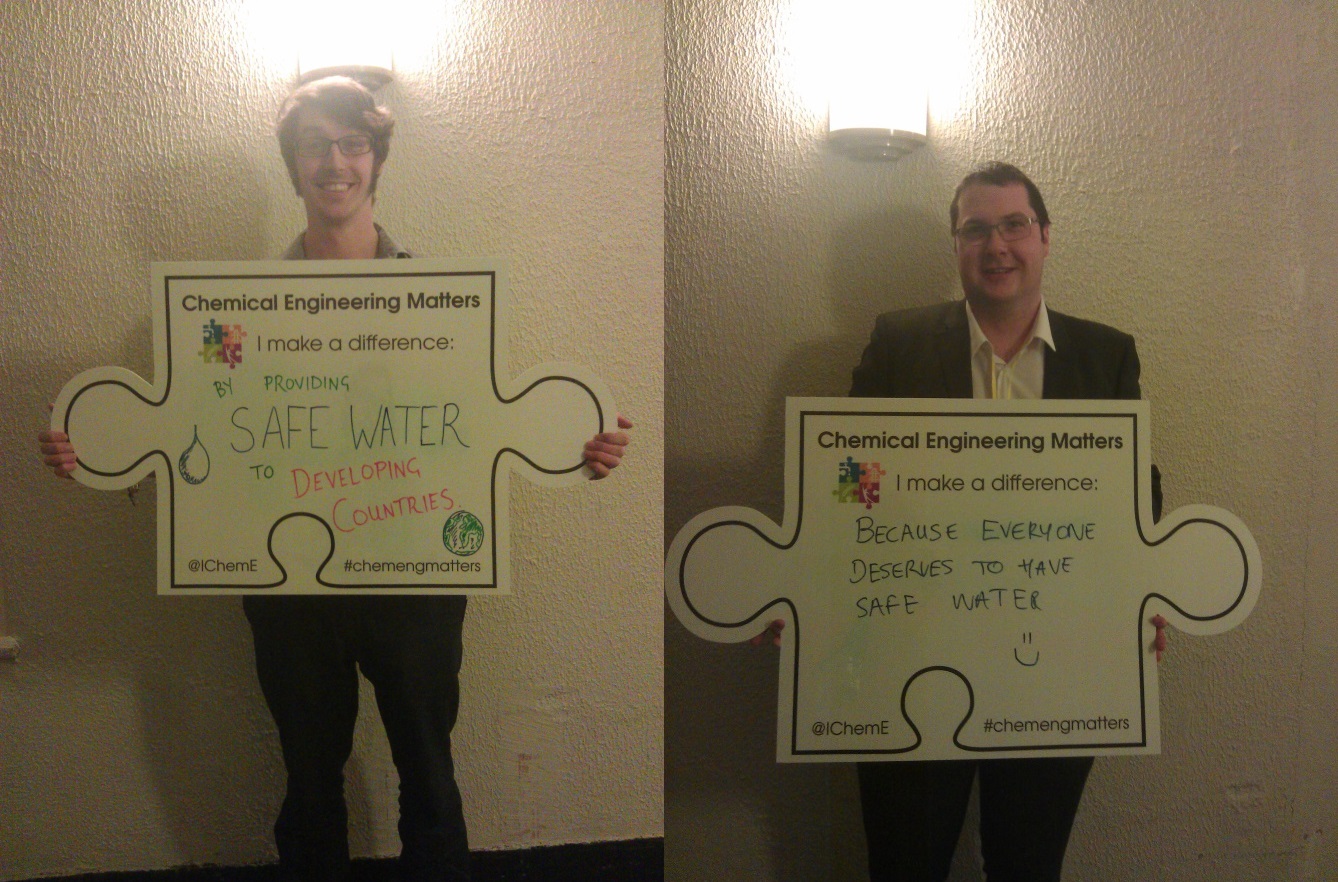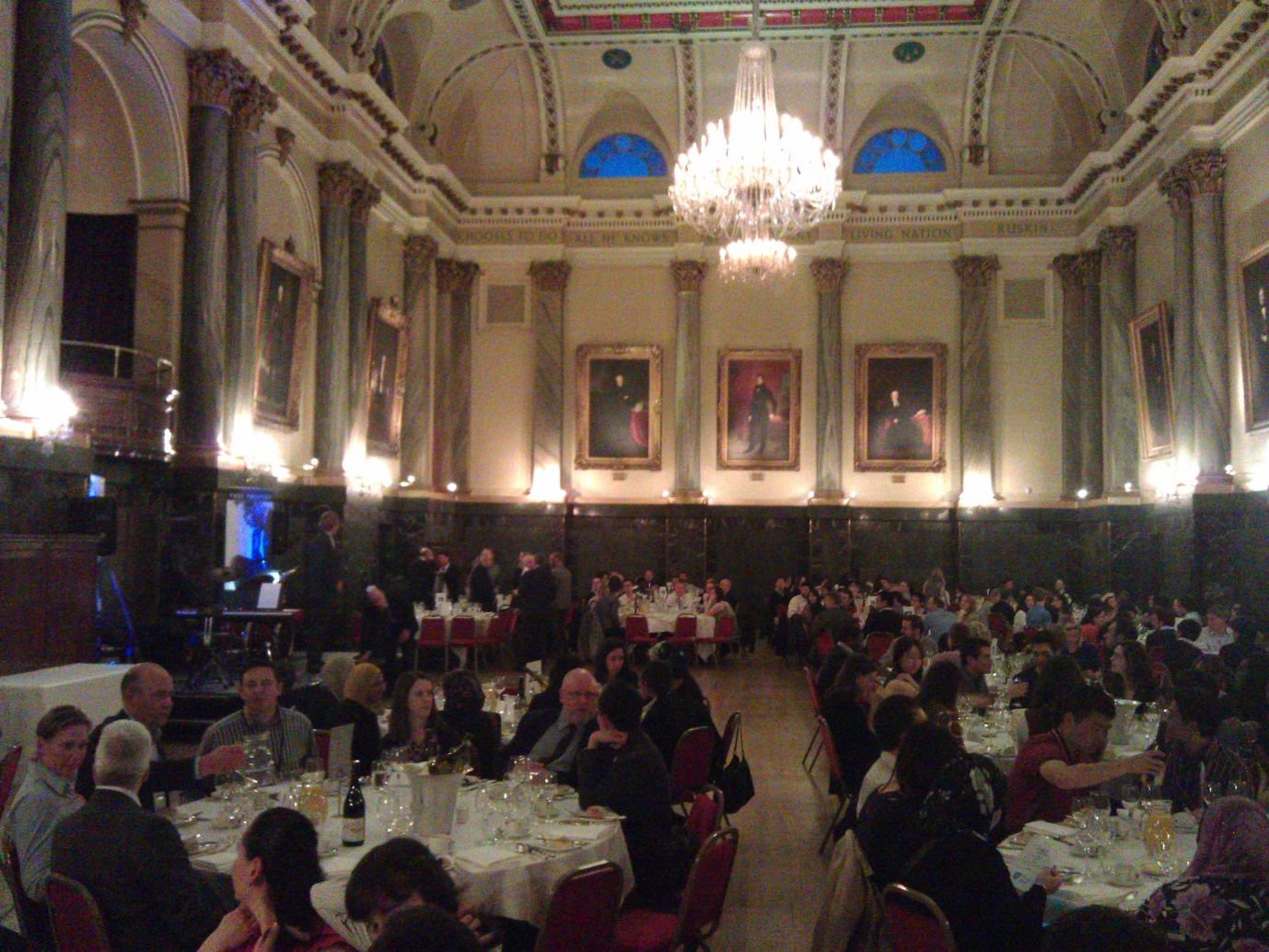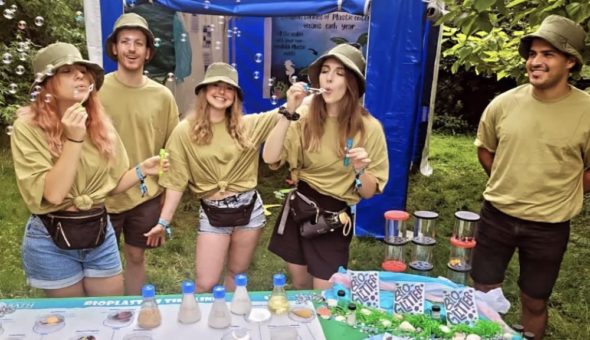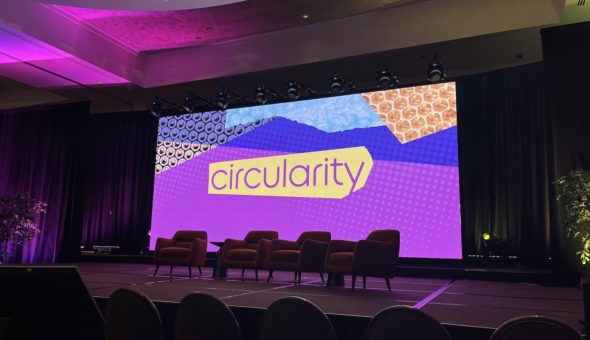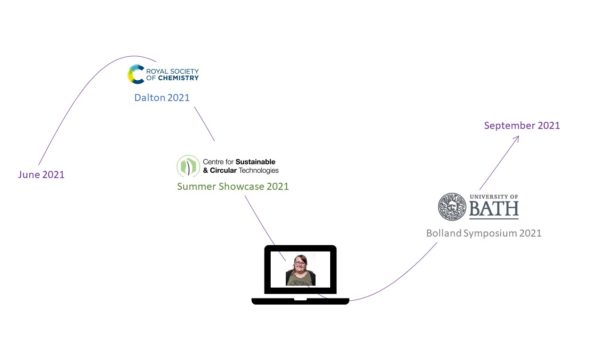Four students from the CSCT: Stephen Bradley, Dominic Ferdani, Richard Maltby and Jon Chouler, recently attended and presented posters at ChemEngDay 2015, hosted by the University of Sheffield for IChemE. The event had over 350 Chemical Engineers from academia and industry. This report is written by 1st year PhD student, Jon Chouler, who also received the first prize for his poster in the Food and Water category.
ChemEngDay 2015 was held in the magnificent Sheffield City Hall, and upon arrival on Wednesday morning at 9 am, it was clear that the conference would be a good one. Posters were displayed on subjects ranging from food and water, to innovative materials, and engagement and outreach. Stalls from industrial sponsors were a plenty too, and IChemE also had plenty of interesting displays up.
The day kicked off with introductory talks from Prof Mike Hounslow on the history of Sheffield engineering (interestingly started off from donations by nearby workers nearly 100 years ago), and Prof Geoff Maitland about the importance of Chemical Engineering in our world. An exaltation of our importance was enabled by an excellent “how we make a difference” through Chemical Engineering competition, where we had to write in few words on how our research makes a difference in the world.
The first plenary lecture of the day was given by Joroen van der Veer, former CEO of Shell, with some very inspiring words on scenario development for driving a business, as well as leadership models for creating change and impact in a company. As well as giving some very interesting insights into the global energy future from a petrochemical company perspective, he also highlighted the importance of young chemical engineers in inspiring the next generation of engineers.
On the afternoon of the first day, I attended a series of lectures on water and food security. Prof David Butler discussed the impending ‘Perfect Storm’ that approaches us relating to water, food and energy scarcity. He also previewed some very interesting work that looks at addressing this issues by ‘thinking globally, but acting locally’. Jon McGagh presented on water and energy challenges that are prevalent in the mining industries in Australia, and it was hearkening to learn about how serious these challenges are to the planet, as well as the need for excellent engineers to overcome these. Lastly, Constantijn Sanders from Nestlé, discussed his perspectives on sustainable food, which myself being an avid community gardener in Bath, was very fascinating. The key to enabling sustainable food he suggested was in creating stability in access, availability and use of food. His analysis of the nitrogen cycle of growing animals for protein also highlighted that we could all create a big positive impact f we reduced our meat based food consumption. However, I don’t think some are ready to give up the steaks just yet.
With the formal lectures for the day concluded, all the attendees descended upon the beautiful Cutler’s Hall for an excellent dinner, and a chance to talk to fellow Chemical Engineers, as well as to let loose and have a boogie to the Sinatra-esque tones of the Paul Pashly Band. Stephen enjoyed it very much as you can see:
Bright eyed and bushy tailed, we arrived nice and early for the final day of ChemEngDay 2015. I attended a series of lectures on Education and Outreach for engineers, which was run as a very discussion based session with a good amount of dialogue and experience sharing throughout. Jarka Glassey and Eva Sorensen gave fascinating talks on engaging and motivating first year chemical engineers through the use of problem based learning very early on in the course, which indeed sounded like a very effective learning tool for undergraduates. Mark Haw presented his work as part of Really Small Science, an initiative that engages young children through experiments and exhibits to educate and inspire them all about nanotechnology. As someone who really enjoys engaging younger audiences with my research, it was really helpful to hear the experiences of someone who does this very well.
The day progressed with a poster session over drinks (of course), where I got to present my own poster on how Microbial Fuel Cells can be used as water sensors for developing countries, as well as to peruse the excellent amount of research that is going on at various institutes for Chemical Engineering.
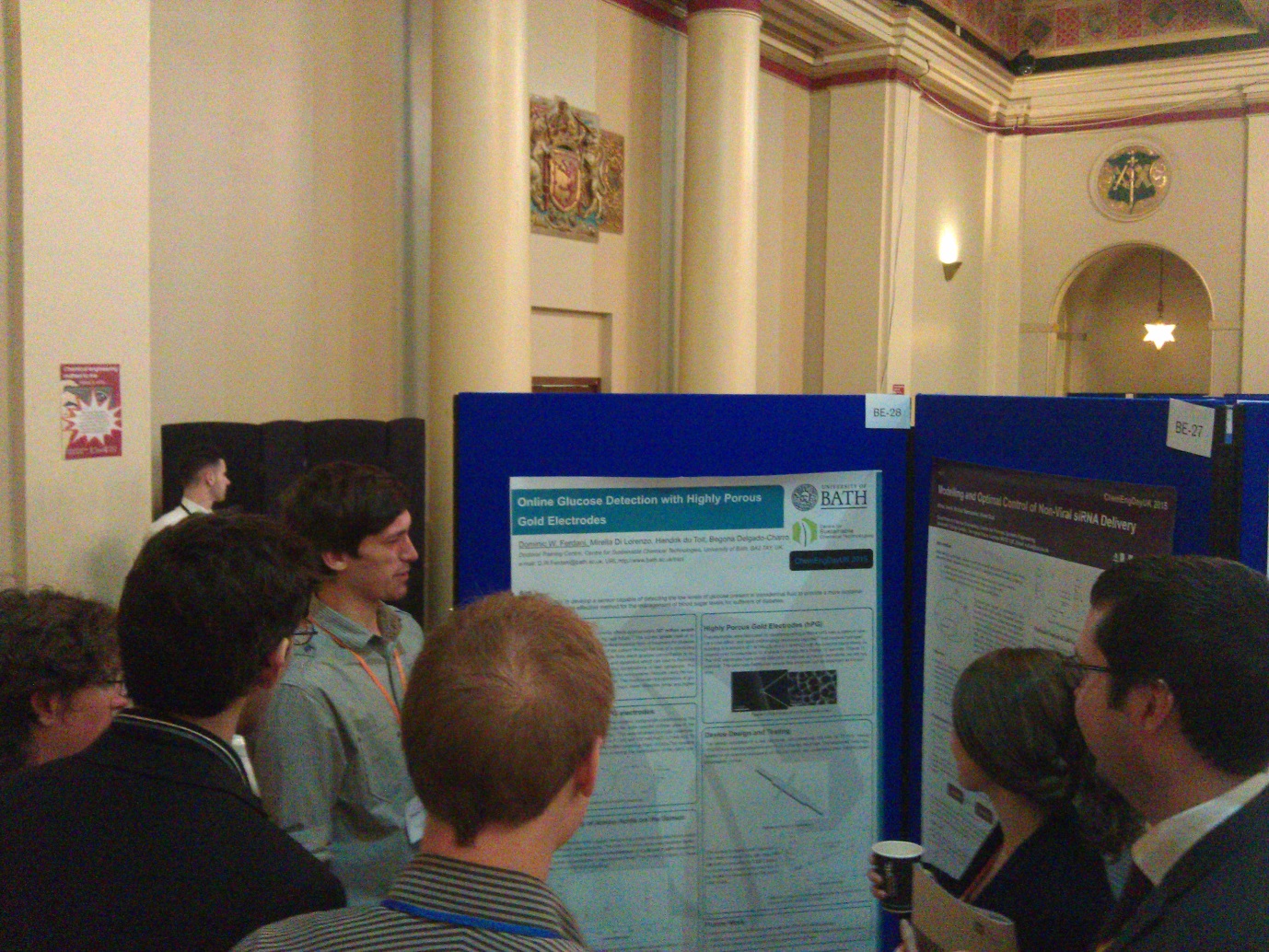
The day concluded with Philip Wright giving the closing words on the day in the Memorial Hall, and also with prizes for the best posters at the conference. Low and behold, my poster received first prize in the Food and Water category and I received a shiny new iPad mini!
So all in all, an excellent conference with so many fascinating and inspiring talks. I for one will most certainly be attending next year’s ChemEngDay at the University of Bath (and not only because it’ll be very local!).
Respond
